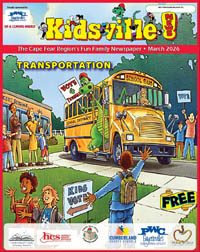PWC begins water changeover, adopts electric rate adjustments; City seeking community partners
- Details
- Tuesday, 03 March 2026
- Written by Staff Report

 PWC begins annual water treatment changeover
PWC begins annual water treatment changeover
The Fayetteville Public Works Commission will begin its annual water treatment disinfectant changeover on Sunday, March 1. This temporary, month-long change is an annual requirement by the North Carolina Department of Environmental Quality for all public water systems that normally use chloramines for disinfection.
Throughout March, PWC will shift from its standard chloramine disinfectant to free chlorine. Customers may notice a slight chlorine smell or experience temporary changes in water taste or appearance. These effects are normal and are not harmful.
This annual changeover includes all PWC customers: residential, commercial, and wholesale consumers- including those in Fort Bragg, the Town of Spring Lake, Hoke County, and the Town of Stedman. PWC will continuously monitor disinfectant levels to ensure safety and reliability.
PWC will return to using chloramines on April 1, 2026. Customers who normally pre-treat their water to remove chloramines (including manufacturers, dialysis providers, and aquatic pet owners) should continue pre-treatment during the month of March.
Hydrant flushing may occur during this period, which can cause temporary low pressure or mild discoloration. These conditions are cosmetic only and go away as the system is flushed.
More information about PWC’s water quality and testing practices is available in the Annual Water Quality Report, published online at: FayPWC.com/Water-Quality-Report/.
PWC adopts electric rate adjustments
At the February 25, Fayetteville Public Works Commission meeting, a public hearing was held regarding adjusting electric rates and PWC fees. Following public comment, the Board voted to adopt new rates and fees over a two-year period. The updated rates will apply to bills sent on or after May 1, while adjusted fees will be effective immediately.
The rates are anticipated to increase PWC’s overall revenue by 5.5% in each of the next two years to cover the actual cost of providing utility services. PWC rates and fees are set as low as possible while still covering actual costs.
According to J.D. Power, average utility prices have risen 34% since 2020. PWC electric rates, including the May 1 increase, have risen 16.5% since then, about half of the national average, as a result of continuing to cut costs whenever possible before raising rates.
PWC’s cost of delivering safe and reliable electric services has increased, which requires rate and fee adjustments to keep pace. Projected increases include:
• $16 million annual increase in Purchased Power from Duke Energy
• $6 million in debt service costs for Capital Projects
• $4 million in electrical systems & operating expenses
“Our priority at PWC is to continue delivering safe, reliable, and affordable electric, water, and wastewater services to all of our customers” said Timothy Bryant, P.E. CEO/General Manager of Fayetteville PWC. “Before PWC considered any rate increase, staff was intentional about spending and implemented significant cost saving measures across the business. Unfortunately, uncontrollable cost increases are out-pacing cost savings exponentially.”
PWC revenue has remained relatively flat, increasing only 3.26% over the last 7 years. Over the past four years, PWC has reduced costs below its budget on average by $15.8 million per year in operations and maintenance costs in addition to another $7.6 million per year in project deferments and job scope reclassifications.
A residential customer using 1000 kWh per month may see increases of $8.02 in May 2026 and $8.59 in May 2027. Even with the approved rate changes, PWC residential customers continue to pay less than the state average and less than all other electric providers in Cumberland County. Additionally, PWC reliability, measured in minutes of outage time, continues to be the best among all Cumberland County electric utilities and among the best in North Carolina.
The approved rates include a new non-residential rate designed to support economic development for large power users requiring more than 5 megawatts of capacity.
The proposed adjustments follow an independent, third-party cost-of-service study conducted every two years to ensure rates fairly reflect the actual cost of providing reliable electric service. The temporary Power Supply Adjustment (PSA) that has been in place since August 2025 will end in August 2026. The PSA is approximately $5.41 per 1000 kWh.
For additional information about the rate adjustments, visit FayPWC.com.
City seeks community partners for Safe Spaces Activation initiative
The City’s Office of Community Safety is seeking to partner with community-based organizations to lead trauma-informed, community-led events to support youth, young adults and families, prioritizing communities identified for violence prevention, resource connection and strengthening community trust.
Qualified organizations are encouraged to apply to the Safe Spaces Activation request for proposal.
Safe Space Activations are intended to activate public and community spaces to support community engagement, resource coordination and community violence intervention strategies. The total funding available under this RFP is $100,000. The City will award up to four contracts, each for $25,000.
Proposals are due by Friday, March 12 at 2 p.m.
"Our goal is to partner with local organizations to build a network of support so we can provide safe events for all young residents and families,” says OCS Director John Jones.

 How to resolve AdBlock issue?
How to resolve AdBlock issue? 












